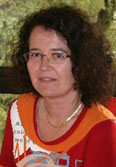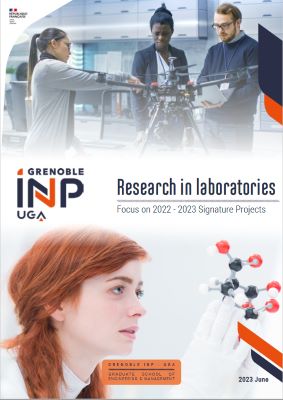 Two and a half years ago, the Post Master Degree programme “Biorefinery: bioenergy, bioproducts and biomaterials” was launched at Grenoble INP – Pagora, trailblazer in the field at the time. Drawing on scientific expertise derived from the innovative green chemistry research carried out at LGP2 and the institution’s strong ties with industry, the Post Master program, conducted in English, covers the entire chain from the biorefinery (fractionation of plant biomass) to production of bioenergy, bioproducts and biomaterials.
Two and a half years ago, the Post Master Degree programme “Biorefinery: bioenergy, bioproducts and biomaterials” was launched at Grenoble INP – Pagora, trailblazer in the field at the time. Drawing on scientific expertise derived from the innovative green chemistry research carried out at LGP2 and the institution’s strong ties with industry, the Post Master program, conducted in English, covers the entire chain from the biorefinery (fractionation of plant biomass) to production of bioenergy, bioproducts and biomaterials. The development of bio-based chemistry
Since the launch of the program, the field, also known as bio-based chemistry, has continued to develop worldwide as attested by the creation of Carnot Polynat and the competitive cluster Xylofutur in 2011. Another fine example is the Tec21 Laboratory of Excellence (Labex), created in early 2013, and which includes a biorefinery component. Moreover, in July 2013, the European Commission gave its go-ahead for the launch of a Public Private Partnership (PPP) on Biobased industries (BIC). With a budget of 3.8 billion Euros, this PPP, which already counts approximately fifty European research centres, is geared towards reindustrialising Europe in the area of biobased economy. In terms of training, things are changing at a rapid pace. Accordingly, Agro Paris Tech recently started a specialised biorefinery course and ENSCT in Toulouse followed suit. We at Grenoble INP will have to expand our training courses offered in this area in order to maintain the edge that we had two years ago. In this context, later this month we will be hosting a delegation of professors from the University of Québec in Trois-Rivières (Canada) in order to discuss a joint biorefinery training project.
Christine Chirat, professor at Grenoble INP – Pagora, researcher at LGP2





